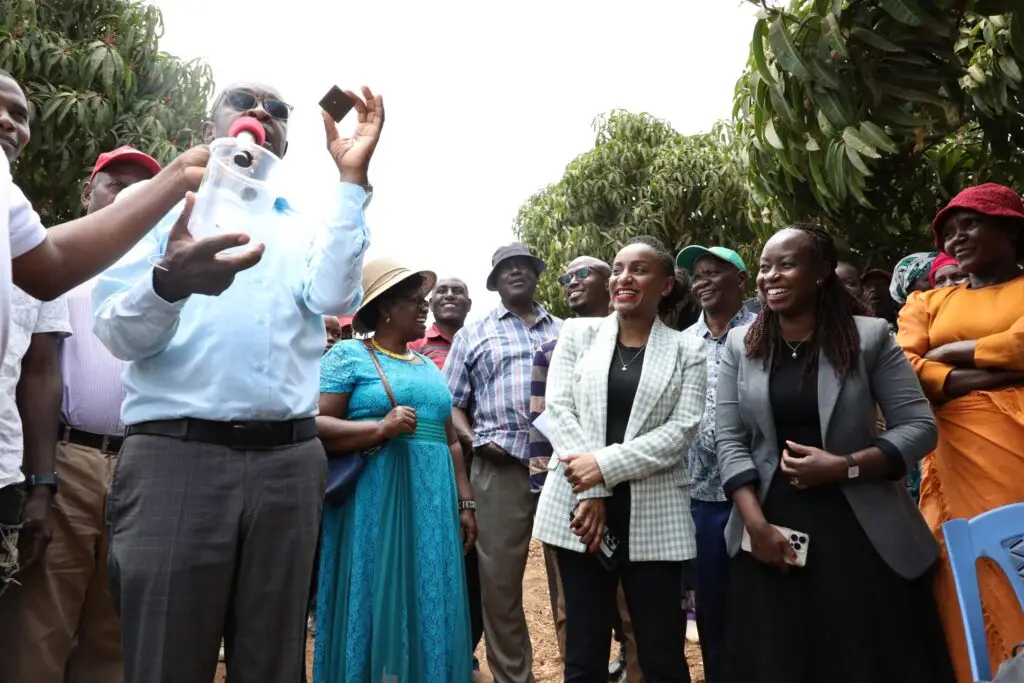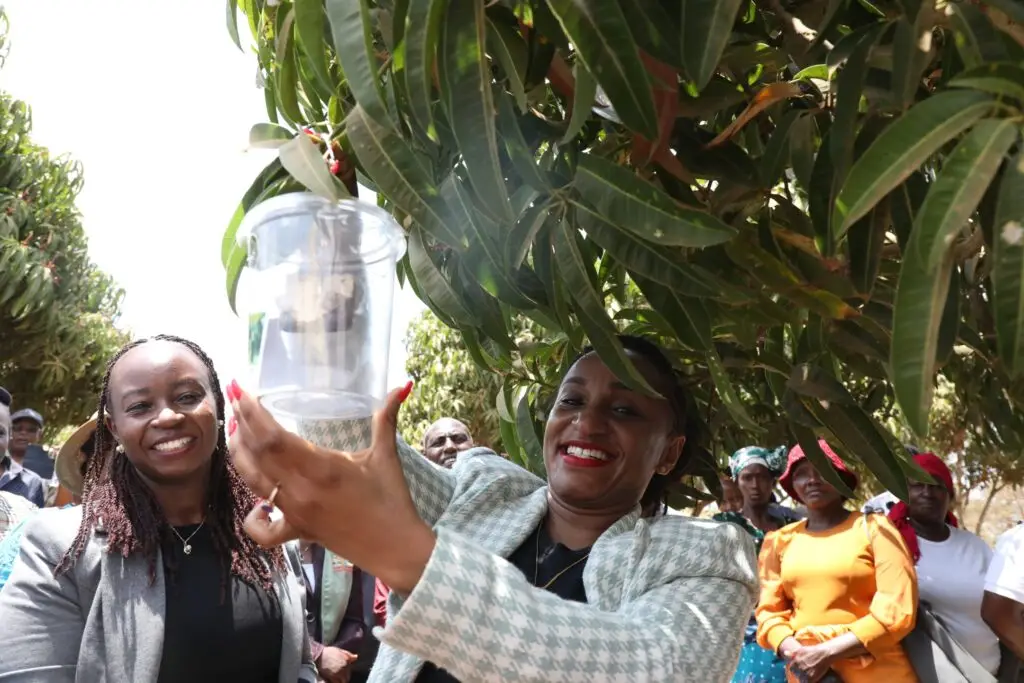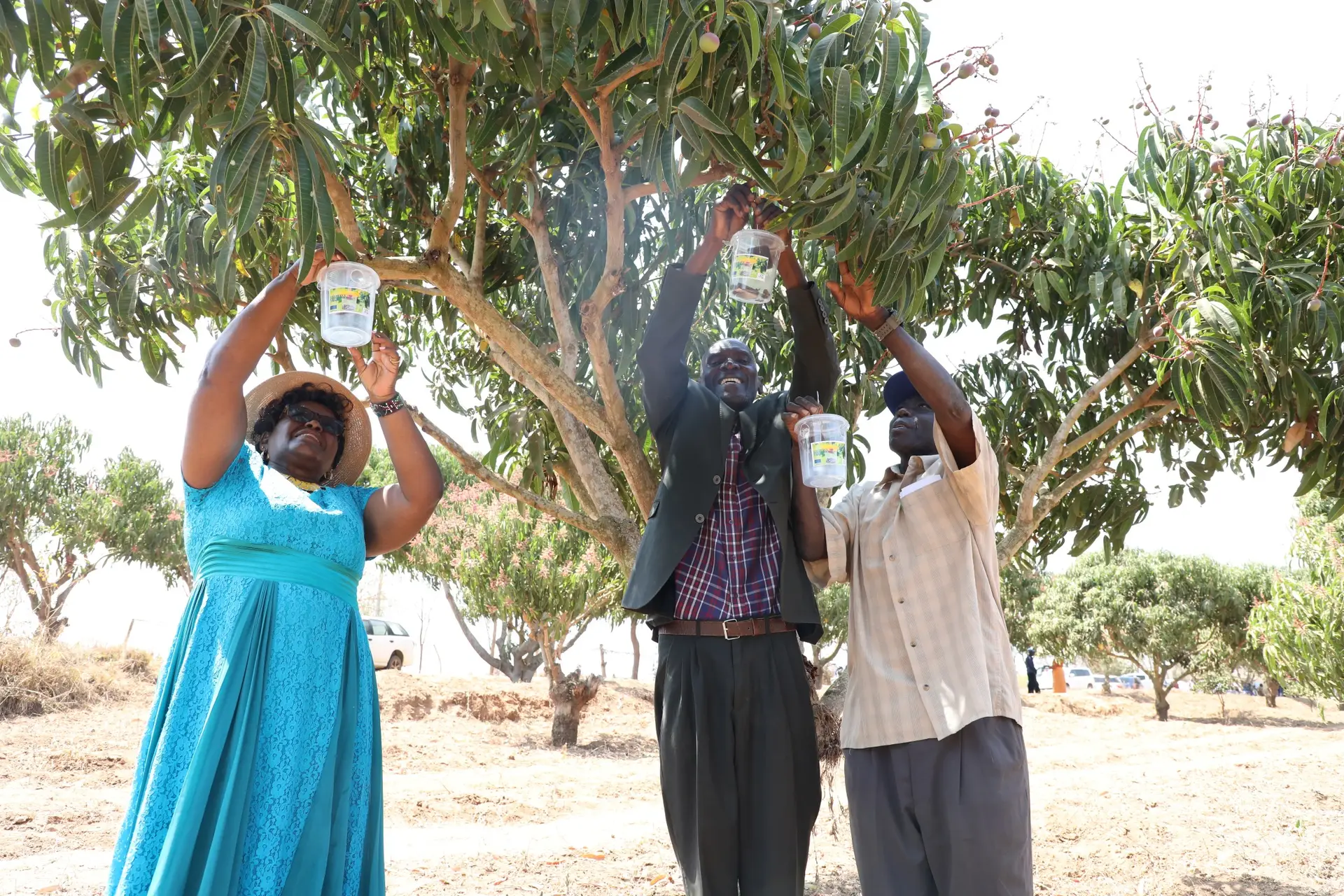Makueni, Kenya. 16 September 2025 – Makueni County has launched a major effort to reopen European Union markets for its mangoes, deploying 15,000 fruit fly traps to farmers across the county. The initiative, supported by TradeMark Africa (TMA) through the European Union-funded Business Environment and Export Enhancement Programme (EU-BEEEP), targets fruit fly infestation, the single biggest barrier to Kenya’s mango exports.
Mangoes are central to Makueni’s economy. The county produces an estimated 245,000 metric tonnes annually, making it Kenya’s largest producer. Yet, despite this abundance, farmers continue to face heavy losses, with more than 40% of the harvest, worth close to Kes. 4 billion, wasted each year due to pest damage, poor post-harvest handling, and non-compliance with global standards. The losses are beyond financial, affecting over 60,000 farming households whose livelihoods depend directly on mango production. The pheromone-based traps lure male flies and prevent reproduction, cutting infestation rates significantly.

Receiving the fly traps on behalf of the farmers, County Executive Committee Member at the Department of Agriculture, Irrigation, Livestock, Fisheries & Cooperative Development, Ms. Elizabeth Muli, said, “Mango farming sustains thousands of families in Makueni. Yet, every year our farmers lose nearly half of their produce before it even reaches the market. Fruit fly infestation has been one of the biggest challenges, holding back our people from fully benefiting from export opportunities. These traps will go a long way in protecting our harvests, cutting losses, and enabling our mangoes to compete in the most demanding global markets. As a county, we are committed to working with partners like TradeMark Africa and the European Union to strengthen compliance and build prosperity for our farmers.”
The intervention is part of wider efforts to operationalise the Makueni Export Supply Hub (ESH), a facility that will serve as a central point for produce aggregation, cold storage, inspection, and certification. By streamlining these functions, the hub is expected to reduce post-harvest losses, enhance quality control, and make it easier for farmers to meet export requirements.

Speaking at the event, Lillian Mwai, Kenya Country Director at TradeMark Africa, emphasised the impact of this investment on Kenya’s competitiveness. She said, “Fruit fly infestation has long undermined Kenya’s ability to compete in international markets. By deploying these traps, we are not only reducing pest-related losses but also strengthening farmers’ capacity to consistently comply with global phytosanitary standards.
For exporters, this means fewer rejections, shorter clearance times, and greater certainty that produce will reach high-value markets on schedule. For Kenya, it reinforces our reputation as a reliable supplier of safe, high-quality horticultural products. This intervention aligns with our broader mission to support export-led growth, create jobs, and raise incomes for farmers under the BEEEP programme.”
In 2024, mangoes contributed 13.6% of the Kes. 41 billion earned from Kenya’s fruit exports to various markets. Yet despite their significant contribution to exports, the crop’s full potential is yet to be reached. A decade ago, Kenya imposed a self-ban on mango exports to the EU following widespread fruit fly infestation. Since then, reducing pest-related losses has been at the heart of efforts to reopen access to this valuable market. The opportunity is enormous. The European Union imports more than Kes. 140 billion worth of mangoes each year and capturing even a small share of that trade could deliver billions of shillings to Kenyan farmers.


